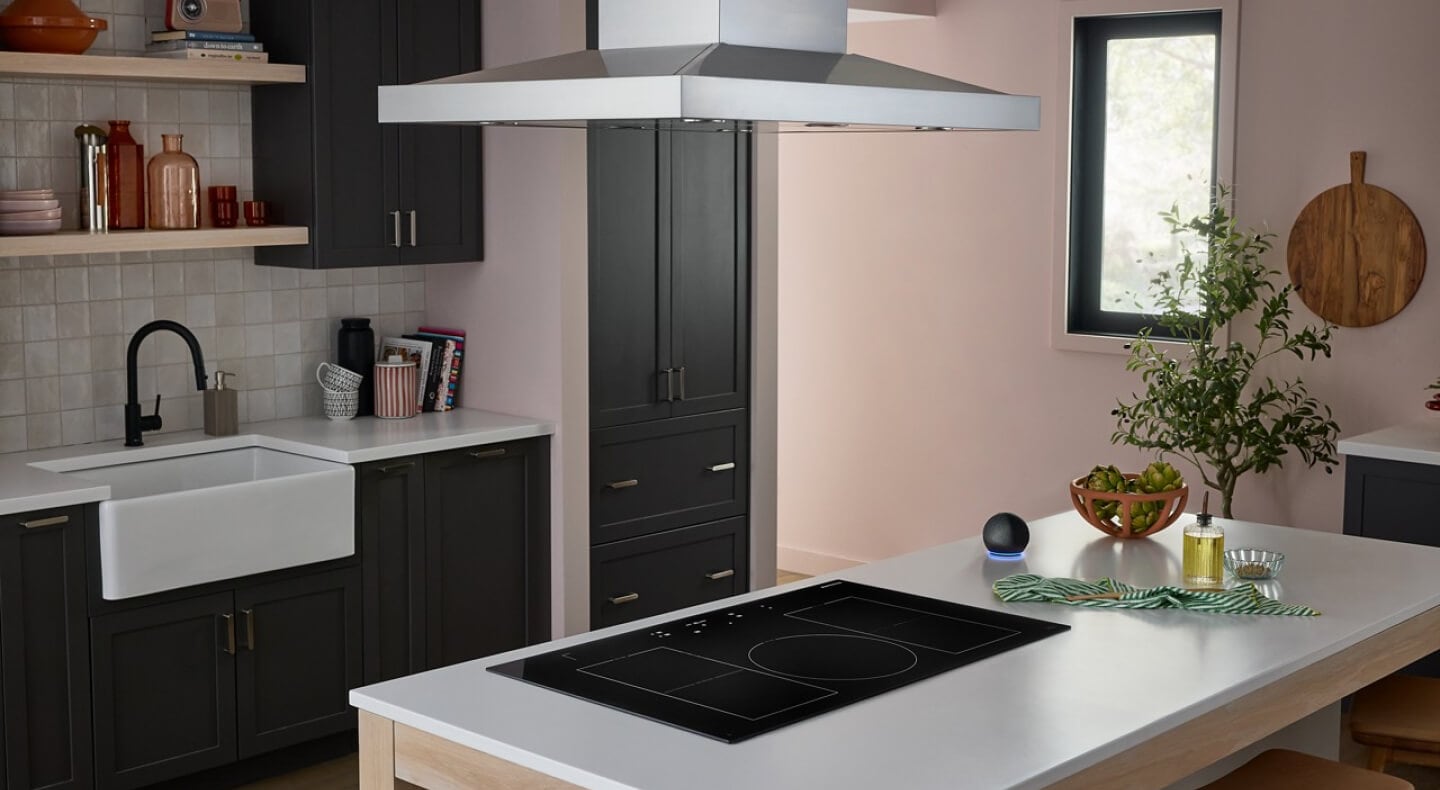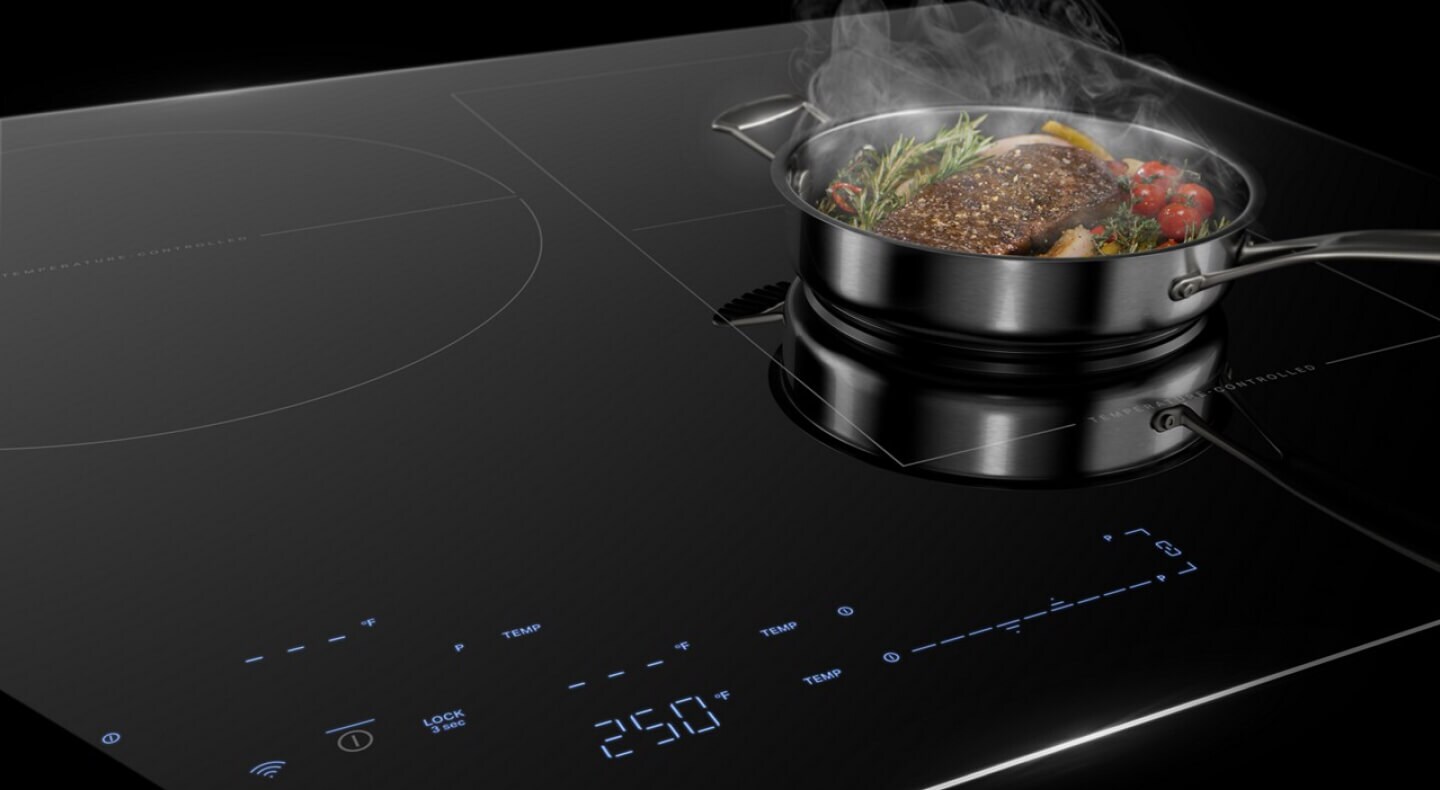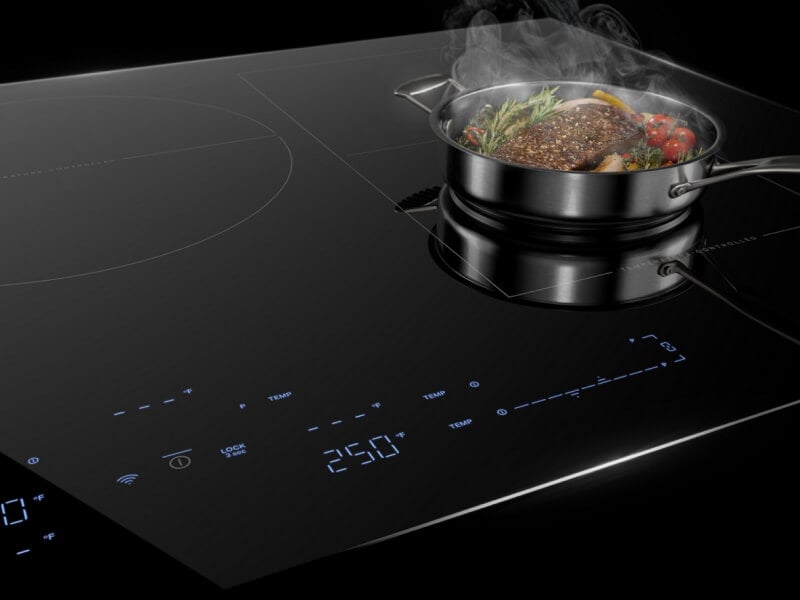
EVERYTHING YOU NEED TO KNOW TO COOK WITH INDUCTION
Induction cooktops and ranges may resemble their traditional gas or electric counterparts, but the technology behind them is completely different. Instead of relying on open flames or heated elements, induction cooking uses a copper coil beneath the surface to create electromagnetic energy, which directly heats compatible cookware.
Use this comprehensive guide to help you begin induction cooking.
GETTING STARTED WITH INDUCTION COOKING
Induction cooking gives you the best of both worlds, providing the sleek, easy-to-clean surface of a glass or smooth-top electric cooktop, along with the similar kind of precision and control you’d expect from cooking with gas.
Instead of heating the burner, an induction cooktop sends an electromagnetic current through coils under the surface, which then interacts with compatible pots and pans, turning them into their own heat source.
Induction cooktops only work with cookware made of certain metals, like cast iron or stainless steel, or cookware labeled “induction ready.”
HOW TO USE AN INDUCTION COOKTOP
To get started using an induction cooktop, there are a few things to consider. Follow the steps below to help pave the way to induction cooking success.
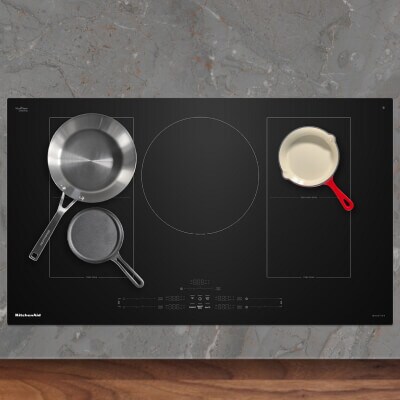

1. CHOOSE THE RIGHT COOKWARE
As induction cooking relies on electromagnetic energy, it requires specific cookware. If a magnet sticks to the base of your cookware or if the cookware is marked as induction-compatible, it should be good to go. Cookware with a flat bottom is also ideal, helping to ensure even contact and heat distribution. Cast iron and most stainless steel pots and pans are generally a great fit, while copper, aluminum, glass and ceramic cookware typically won’t work on induction cooktops.
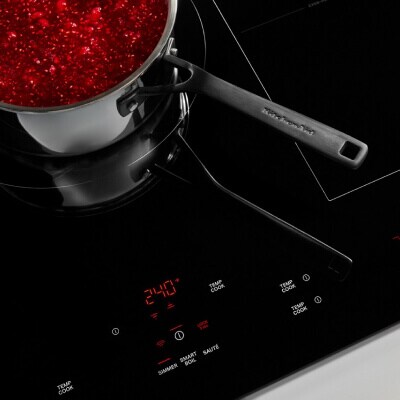

2. EXPERIMENT WITH TEMPERATURE
One of the perks of induction cooking is its speed; this heating method heats up cookware quickly and can shave time off meal prep. That said, if you’re used to leisurely chopping vegetables while your pan warms up, you might need to tweak your routine and prep a few ingredients in advance.
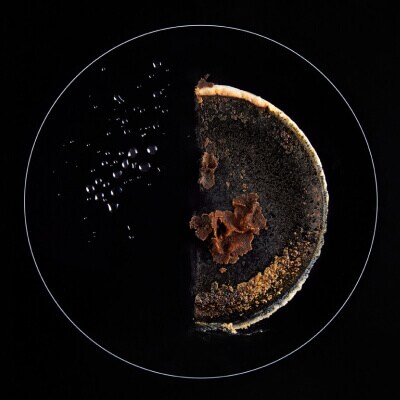

3. EXPECT EASY CLEANUP
Cleanup tends to be easier with induction cooking since the cooktop surface doesn’t get as hot, making spills and splatters less likely to burn on. Some KitchenAid® induction cooktops also feature the WipeClean™ Coating, which eliminates scraping, intense scrubbing and harsh cleaners, making this the easiest induction cooktop coating to clean.1 Just wet the surface with water and wait five minutes to easily wipe up splatters and spills.
1. When compared with cooktop with same heating technology at similar power output.
INDUCTION COOKING: PRO POINTERS
Learn more about induction cooking, including how to care for your induction cooktop, with the tips below.
CONSIDER VENTILATION
Overall, less hot air is released into the kitchen with induction cooking. That being said, a hood vent is still recommended to help capture grease.
KitchenAid brand offers a wide selection of vent hoods that come in a variety of designs and styles so you can find the right option to match your kitchen’s layout.
MONITOR YOUR PACE
Because it may take a little extra attention to get used to the faster pace of induction cooking during your first few meals, start slow and adjust as you go.
SERVE FOODS AT YOUR DESIRED TEMPERATURE
Induction cooktops can give you precise temperature control to help maintain consistent heat—while also helping to avoid overheating. For example, Temp Cook™ Smart Presets on select KitchenAid® induction models allow you to set and hold the ideal temperature for popular cooking methods. Presets can also alert you when to add ingredients, so you can perfectly sear salmon, gently simmer sauces and quickly boil water.
EMBRACE THE BUZZ
You might notice a faint humming or buzzing sound while the cooktop is in use, caused by slight vibrations in the cookware. This is completely normal.

KitchenAid® POWER BOOST FUNCTION
GET EXTRA HEAT WHEN YOU NEED IT
Select KitchenAid® induction cooktops with the Power Boost Function let you ramp up the heat for short periods of time so you can start creating your favorite recipes faster
